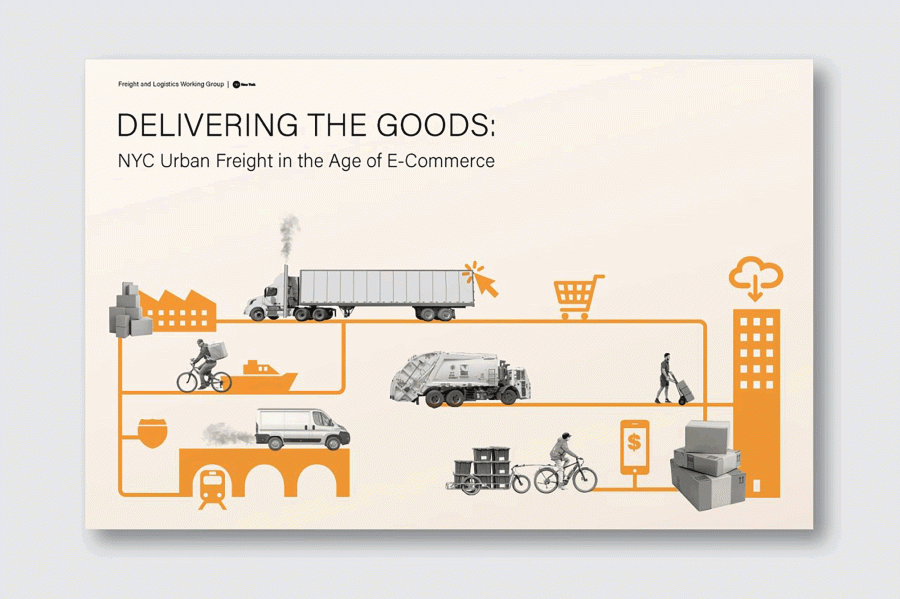
December 21, 2022 — The Urban Freight Lab is cited as a model for stakeholder engagement in New York City’s Delivering the Goods: NYC Urban Freight in the Age of Ecommerce, authored by the American Institute of Architects (AIA)Freight and Logistics Working Group as a blueprint for an efficient, equitable, and sustainable goods movement system that benefits the entire city.
Developed by an interdisciplinary task force of planners, designers, architects, academics, and traffic engineers, the document presents current-state urban freight scenarios and lays out short- and long-term solutions to improve land use and curb management and counter the burdens imposed on communities.
To create the document, the task force looked to a broad range of stakeholders and held listening sessions to understand best practices in other cities as well as local community, industry, and agency perspectives.
The goods delivery and distribution network is inherently cross-jurisdictional, involving multiple governments and impacting multiple stakeholders along the way; a simple delivery trip could illustrate the many challenges related to street design and land use that confront cities, local neighborhoods, and the goods movement industry.
“The competitive nature of private enterprise discourages transparency and information sharing. And separate government agencies with discrete areas of responsibility often lack a centralized mechanism through which to build trust, coordinate policies, and test new ideas,” the report states. “But there are strategies to address these challenges.”
One strategic model for stakeholder engagement is a forum for open communication and collaborative problem-solving, supported by regular meetings between government agencies and the freight industry.
One such forum is the Urban Freight Lab, “a structured public/private working group that brings together freight industry partners and city officials to test strategies to improve urban freight management,” says the report.
The authors advise that the City could expand its Freight Advisory Committee to include community representation, thus providing an inclusive community, industry, and government forum to share knowledge, dissolve blind spots, and test strategies.
“Facilitated by a neutral third-party organization similar to the Urban Freight Lab, the forum would provide a platform to build consensus and resolve conflicts between stakeholders,” the report states. “The cross-jurisdictional collaborative model would also enable fair and equitable access to innovation and experimentation that may otherwise be prohibitive when approached independently.”
More About the UFL
- How we work
- Read our research publications
- Media recognition of the Urban Freight Lab
- Learn about our current research
- Meet our members
- Join us
About the Urban Freight Lab (UFL): An innovative public-private partnership housed at the Supply Chain Transportation & Logistics Center at the University of Washington, the Urban Freight Lab is a structured workgroup that brings together private industry with City transportation officials to design and test solutions around urban freight management.